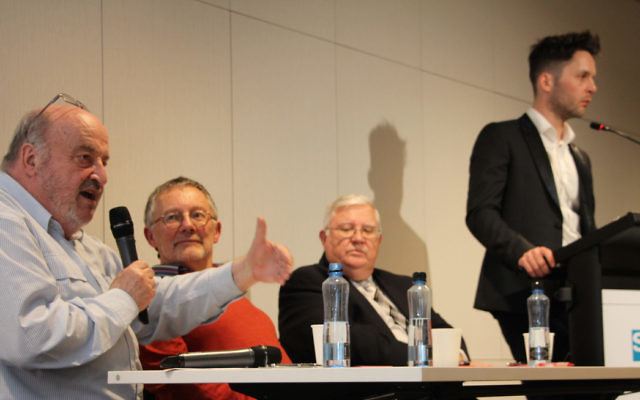Nuremberg’s legacy 70 years on
The legacy of the Nuremberg war crimes trials as the foundation stone for international criminal law was explored at a public forum last week marking the 70th anniversary of the trials at the Sydney Jewish Museum (SJM), moderated by human rights lawyer Peerce McManus.

THE legacy of the Nuremberg war crimes trials as the foundation stone for international criminal law was explored at a public forum last week marking the 70th anniversary of the trials at the Sydney Jewish Museum (SJM), moderated by human rights lawyer Peerce McManus.
The 1946 trials resulted in sentences, including the death penalty, for 19 Nazi war criminals, while more than 6000 former Nazis were sentenced in subsequent tribunals around the world – and prosecutions in Germany are continuing.
But concerns were raised by the panellists about obstacles that remain in bringing perpetrators of war crimes, genocide and crimes against humanity to justice.
Graham Thomas Blewitt, who was director of the Australian Nazi War Crimes Special Investigations Unit and deputy chief prosecutor for the UN International Criminal Tribunal for the former Yugoslavia (ICTY), said that until Nuremberg “impunity for crimes against humanity was rife … it was the law of the jungle”.
Nuremberg, he said, paved the way for the eventual establishment of the ICTY, the Rwanda Tribunal and finally, in 2002, the International Criminal Court (ICC).
“Enforcing it [international criminal law], however, is the difficult part.
“What is lacking is the political will … and we see that in what’s happening in Syria today.”
Blewitt said unlike the ICTY, which all UN members had a legal obligation to comply with, the ICC is member-based and many countries, including three of the five permanent members of the Security Council (Russia, China and the US), have not joined.
Furthermore, a provision enables a state to respond to an ICC decision to investigate by saying “we will do it ourselves”.
Winton Higgins, board member of the Australian Institute of Holocaust and Genocide Studies and author of Rule of Law, said Nuremberg came to stand for “individual responsibility” for these types of crimes – “a massive intellectual achievement”.
“It is a legacy that is badly in need of retrieval today,” he said, claiming that the ICC’s ability to be effective is hindered by a lack of interest – and even an active hostility – towards it by many countries.
Hailing the legal concepts introduced in Nuremberg as “major milestones”, SJM’s resident historian and former chief historian of the Australian War Crimes Commission, Professor Konrad Kwiet, lamented, “When it comes to the prevention of these horrific crimes, we have a very poor record.”
While noting that “there is some movement” in this country in relation to prosecuting people who join ISIS and then return to Australia, he added, “Beyond that, I see no evidence of any political will to pursue war criminals here.”
SHANE DESIATNIK

comments